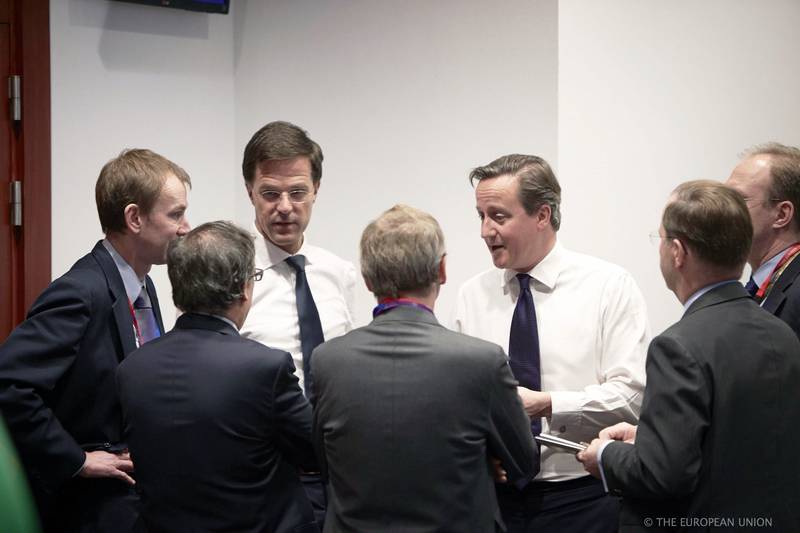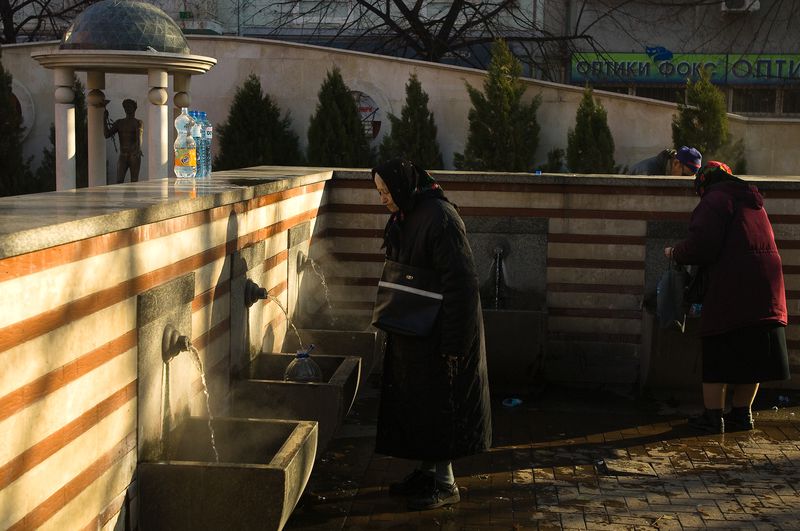Bulgaria Will Insist on Equal Treatment in the European Budget
Ralitsa Kovacheva, October 20, 2011
The Polish EU Presidency and the European Commission have organised a broad conference that marks the beginning of the usually intense debates on the multiannual budget of the community. In the conference in Brussels take part representatives of the national and European institutions, parliaments, governments and other interested organisations and individuals. Participation in the debates on the budget for the next seven years is very important because each country is defending its own national interest, but when it is about money positions in the EU change really fast. During the two-day conference euinside met several Bulgarian representatives and now we are presenting to you the opinion of Deputy Minister of Finance Boryana Pencheva.
euinside: Mrs Pencheva, we are meeting with you in the framework of the conference for the next European budget, organised by the Polish EU Presidency and the European Commission in Brussels. Tell us what is the Bulgarian position and how is Bulgaria going to present it here at this first big opening debate for the next budget?
Boryana Pencheva: Bulgaria indeed supports the European Commission proposal to have a budget that would respond to the challenges. There have to be allocated sufficient resources. We will again put forward our vision that investments in growth and employment have to be in the focus of spending for the next period and we think that the Cohesion Policy, as a proven instrument of solidarity, will contribute precisely for this - growth and Europe's competitiveness, for new jobs. This is why we will emphasise that it is important to invest in infrastructure, energy, transport, environment.
We will underline that according to us capping of spending with up to 2.5% for every beneficiary country under the Cohesion Policy is not justified and we will insist on a higher percentage from the gross national income (GNI). We think that the rules that are valid for the current perspectives should be kept for the next period too, so that indeed we can ensure a competitive Europe, in order the lagging behind regions to be supported. We also accept the creation of the so called transition regions and we think that the funds for them should not be at the expense of the new member states and most of all of the most lagging behind regions such as Bulgaria.
Again we will underline the influence and importance of the agriculture policy, insisting on the application of equal principles for the new and old member states, and we will emphasise that we will accept binding the direct payments with criteria for the environment but our initial analysis shows that 30% of these payments to be directly bound to ecology is too much. We will put forward other issues as well, like more money for nuclear safety and taking out of exploitation of nuclear power plants, but the main thing that we will underline is that it is necessary to invest in infrastructure.
This is not a budget that has to respond to today's challenges of the financial crisis, as was said today (October 20) in the official statements during the opening session - this is a budget of the future. In the next 7 years it has to put forward the strategic priorities and to say how Europe will become more competitive. In other words, this is not a response to a crisis but a budget of the future. This is why we will underline that for us, Bulgaria, as a reliable member, as a very fiscally stable member of the European family it is important to invest.
euinside: But Bulgaria is against the European Commission's idea for taxes on the financial sector as own resources, how does then the country see an opportunity to increase the budget in order to ensure more investments for the things you are talking about?
Boryana Pencheva: Yes, we think that the system of own resources has to be modernised, it has to be simplified, the classical rebates have to be removed so that an indeed equal treatment of the countries is ensured. We think that the main revenues have to come from national contributions based on GNI and we have expressed our principled position against the introduction of a financial transactions tax (FTT). For countries like Bulgaria, with insufficiently developed financial market, this tax will not have a significant impact from a fiscal, a budgetary point of view. In other words, the revenues from this tax will not be big.
Bulgaria would not be burdened with this tax and therefore with a bigger contribution to the EU, on the contrary - our contribution might even drop. The Ministry of Finance has made an analysis of the effect of the introduction of such taxes, so we do not expect any negative consequences for our country and our financial market. But we think that the introduction of such a tax only in Europe would put the European banks in a a less competitive position and this is why our position, at this stage, is against because we think that the issue has to be solved globally, the introduction of this tax has to be globally.
euinside: And finally, would you make a forecast on the outcome of the European Council on Sunday. Today there was a meeting in Frankfurt, the situation in Greece is very unclear. Do you think that the decisions we all expect the leaders to take will happen?
Boryana Pencheva: We think that a solution will be found because Europe is an instrument of solidarity and we think that a solution will be found.
euinside: Thank you.
 | © European Union
| © European Union | © euinside
| © euinside Kristalina Georgieva | © Council of the EU
Kristalina Georgieva | © Council of the EU Mark Rutte, David Cameron | © Council of the EU
Mark Rutte, David Cameron | © Council of the EU | © European Parliament
| © European Parliament | © EU
| © EU